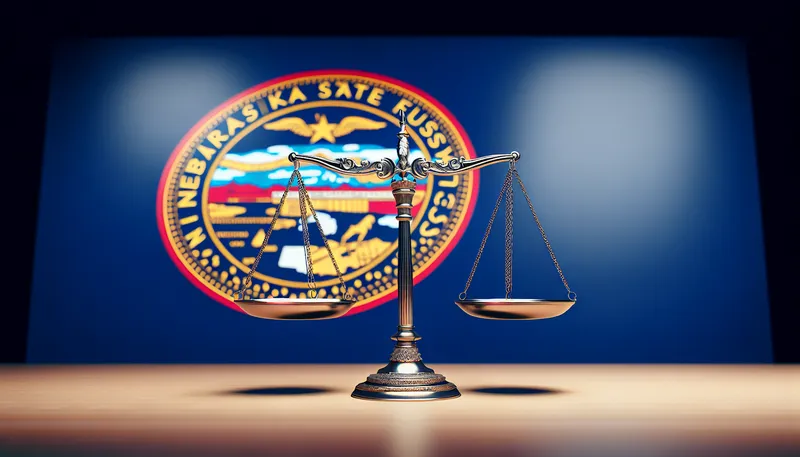Hey there! So, you’re trying to figure out how to fix garnished wages in Nebraska, huh? Been there, done that—well, maybe not in Nebraska specifically, but I know the struggle. It’s a bit like being stuck in quicksand; the harder you try to climb out without a plan, the deeper you sink. But hey, don’t stress too much, there’s always a way to get things back on track.
Understanding How to Fix Garnished Wages in Nebraska
First things first, you need to understand exactly why your wages are being garnished. Usually, this happens when you’ve got a debt that’s been way overdue, like unpaid medical bills, student loans, or taxes. The creditor probably took legal action and voilà—the garnishment lands right at your paycheck. Yikes, right? So, how do you fix garnished wages in Nebraska? Let’s go step-by-step together.
Know Your Rights
Nebraska, like every other state, has its own laws about how much of your wages can be garnished. Generally speaking, the most they can legally take is 25% of your disposable earnings, or the amount by which your weekly income exceeds 30 times the federal minimum wage—whichever is less. Those are pretty significant chunks of change, though, so knowing your rights can help you make sure everything’s on the up-and-up.

Get to the Root Cause
Ever had one of those mystery lights pop up on your car dashboard? Solving wage garnishment is kinda like that. You can’t just ignore it and hope it goes away. You need to find out who you owe and how much. Usually, you’ll get a notice in the mail, but if it’s gone missing in a pile of unopened bills, a call to human resources or the court could clear things up. I once had to dig through piles of old mail like a treasure hunter—why do important papers always hide at the bottom of the stack?
Talk it Out
Now, before you panic and start selling everything that isn’t nailed down, consider contacting the creditor to see if there’s a way to sort things out without involving the courts. I know, negotiating can be intimidating—it’s like haggling at a yard sale with a stern librarian—but it’s worth a shot. Often, creditors are more flexible than you’d think, especially if you can show willingness to pay.

Set Up a Repayment Plan
If negotiating directly feels like swimming with sharks, getting a lawyer involved or heading to court might be your next best step. I know, it sounds costly—something like this once left me with the looking-through-the-couch-cushions-for-change blues. But consider it an investment in getting your wages back in check. Courts sometimes provide options for repayment plans that are more manageable.
Claim Exemptions
You may qualify for exemptions that can reduce the amount being garnished. It’s like hitting the pause button on your favorite show—a reprieve feels good. In Nebraska, you can sometimes claim exemption if the garnishment is causing financial hardship or if the money is tied to specific sources (like certain benefits). Imagine having to argue why your grocery money shouldn’t disappear! It might involve getting proof like pay stubs and expense records. So, maybe don’t skip the paper trail, okay?
Legal Assistance
When things get sticky, sometimes professional help is your best bet. There are non-profit legal aid services and other resources in Nebraska that offer free consultations. I know what you’re thinking: “More professionals to pay?” But actually, this can save you way more money—and give you peace of mind—than going it alone and possibly missing something crucial.
Budget Like a Pro
While you’re sorting out the legal side of things, don’t forget about budgeting on the home front. Garnishments mean less take-home pay, at least temporarily, so it’s probably time to channel your inner penny-pincher extraordinaire. Get creative with meals, cut back on non-essential subscriptions, maybe even consider selling those dusty DVDs that haven’t seen daylight since 2010. It’s tough, I know, but think of it as a puzzle—every piece you resolve is one step closer to getting your finances in a healthier spot.

Learn and Prevent Future Issues
What’s more rewarding than solving a financial crisis? Learning from it to avoid doing the cha-cha with garnishments in the future! Set reminders, automate bill payments, or even consult a financial advisor to put preventative measures in place. Believe me, once you’re back on even footing, you’ll probably want to keep it that way. I once stuck post-it notes everywhere like it was an art project, just to keep myself honest on due dates.
Stay Positive
Facing garnished wages can feel isolating, but it’s so important to remember that you’re not alone and that it’s not a permanent situation. Maybe we don’t get confetti and theme music for tackling garnishments, but the personal satisfaction of closing this chapter is well worth it. Trust me, wrestling with bureaucratic stuff is exhausting, but coming out on top? There’s nothing quite like that feeling.
So, what do you think? Have you tried any of these steps yet? Fixing garnished wages in Nebraska might not be an easy ride, but it’s completely doable. Just take it one step at a time, and remember—you’re reclaiming not just your paycheck, but your peace of mind too.
